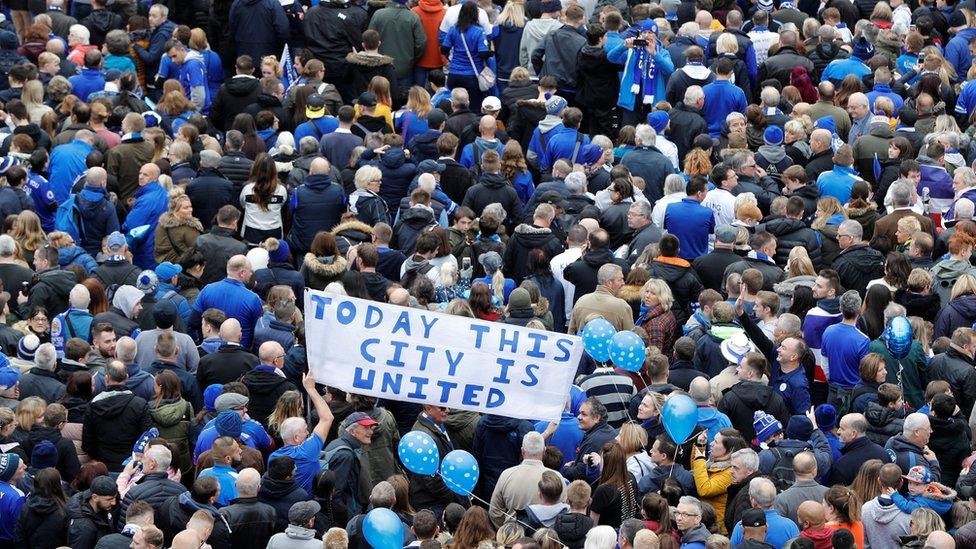Leicester City helicopter crash: 'It still doesn't feel real'
- Published
Footage shows the take-off of the helicopter
"Here we are a year later and it still doesn't feel real."
It's a year since Leicester City goalkeeper Kasper Schmeichel saw the club chairman's helicopter crash shortly after takeoff.
On Saturday 27 October 2018, Schmeichel had family over from Denmark and was showing them around the stadium after the game, a 1-1 draw with West Ham United. Vichai Srivaddhanaprabha's helicopter flights had become something of a tradition after home matches and he wanted to show his family the spectacle.
The Thai billionaire had bought the club in 2010 and presided over its miraculous rise to the top of the Premier League.
"I think it's safe that without him none of us would be here," says Schmeichel. "The history, the memories we've made together, as a club, as a family, probably wouldn't have happened."
He waved the chairman and the helicopter goodbye as it took off from the pitch and ascended into the sky. Schmeichel had seen it take off countless times before, but this time was different. The helicopter started spinning, then Schmeichel watched in horror as it descended out of sight over the top of the stand.
He ran out of the tunnel and round to that side of the King Power Stadium, shouting in panic for people to call the emergency services as he sprinted towards the helicopter, which quickly became engulfed in flames. A security guard had started running after him and tried to get into the helicopter, but they soon realised there was nothing either of them could do.
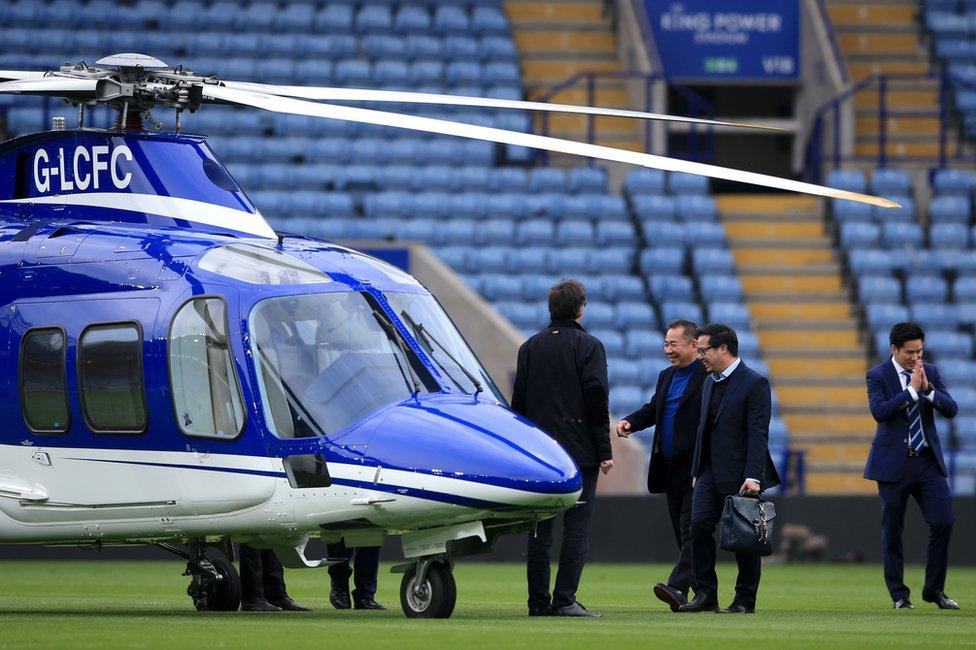
Vichai Srivaddhanaprabha (second left) regularly travelled to and from the ground in either of his two helicopters - this photo shows him next to the other one in April 2016
Former Leicester and England goalkeeper Peter Shilton was outside the stadium, as he had been watching the game with his wife.
"It was surreal and we weren't sure what was happening, but then it started to spiral. We realised it was out of control and all of a sudden it started coming towards us," he previously told the BBC.
"Steph was panicking and it was shock, fear, and all of a sudden it seemed to drop a bit and then crash - it all happened so quickly.
"The image keeps coming back to me of the helicopter spiralling down."
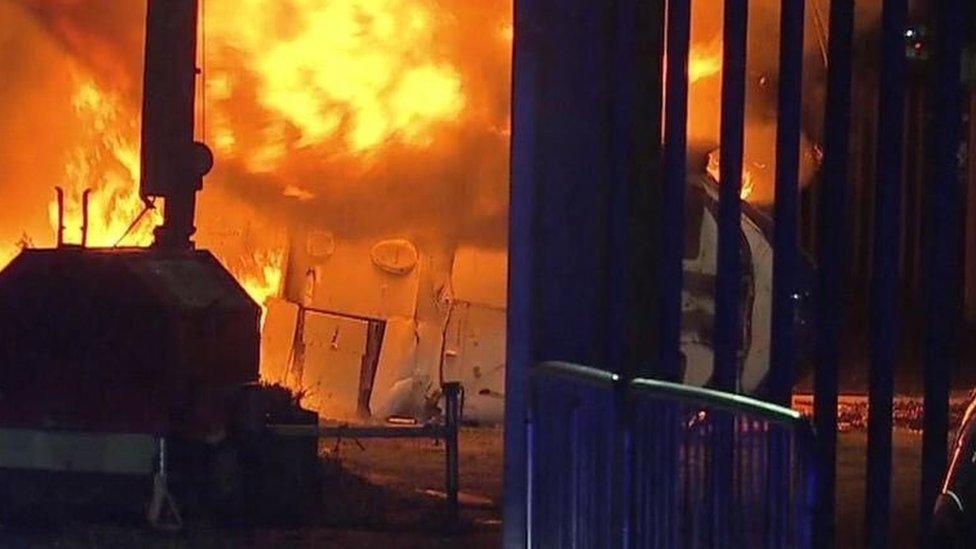
The helicopter crashed outside the King Power Stadium after Leicester City's 1-1 draw with West Ham
The game had long finished when the helicopter crashed at 20:37 BST, but there were still media staff at the ground doing post-match interviews. Talksport match reporter Geoff Peters - a Leicester City fan himself - was among them.
"A lot journalists went round the side of the stadium and we could see all these flames in the distance leaping into the air," he says.
"There was the realisation that this was probably the helicopter, and if it was the helicopter then it was quite conceivable the chairman was inside, and given the flames it was pretty unlikely there would be anyone who survived it.
"Then the next thought was, was there anybody on the ground who had been killed or seriously injured?"
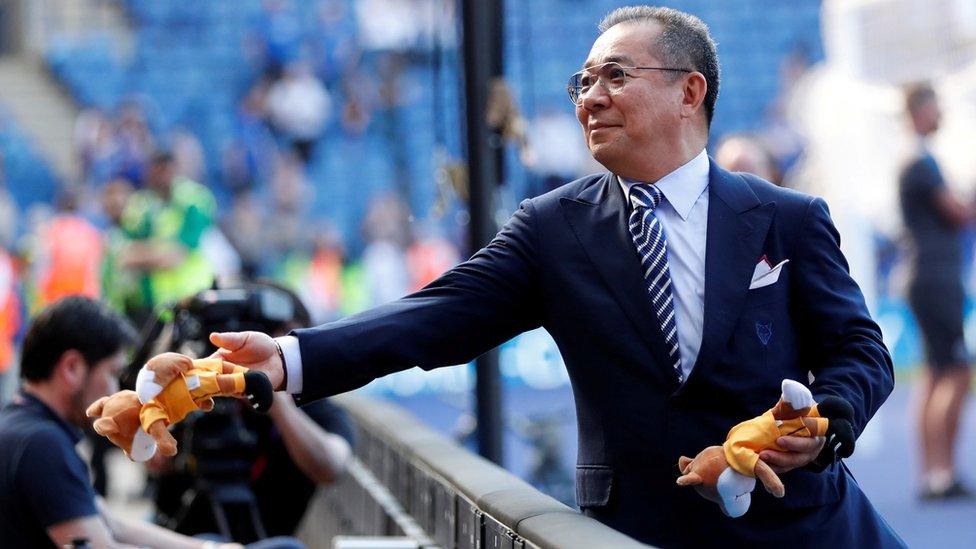
Vichai Srivaddhanaprabha is fondly remembered by supporters
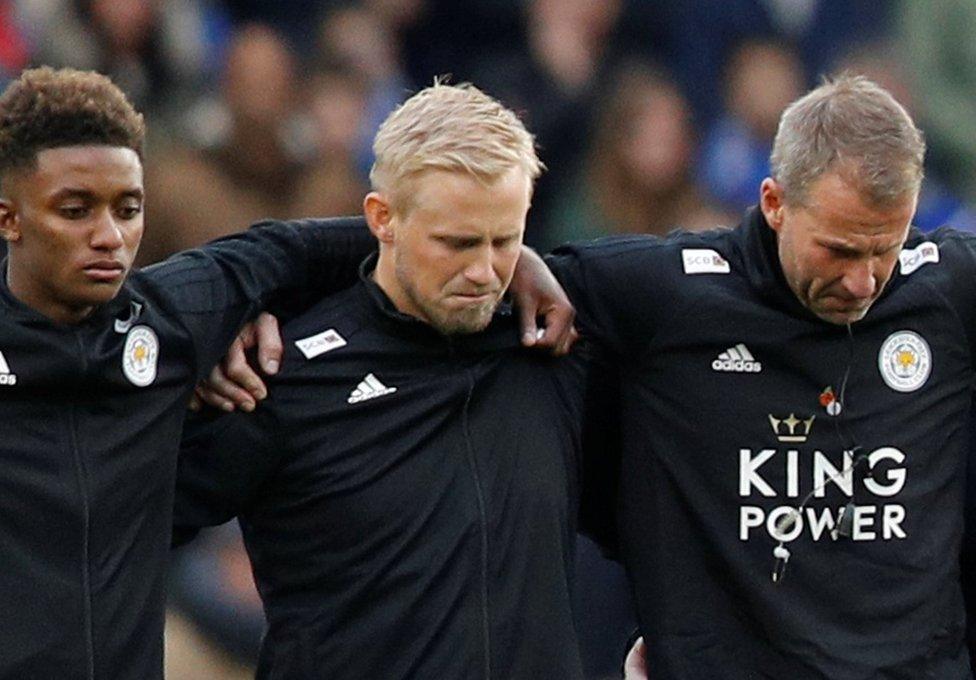
Kasper Schmeichel (centre) took part in a minute's silence when Leicester played Cardiff a week after the crash
He remembers going back to the press room as he and the other journalists pieced together what had happened.
"Everyone was shaking because it was clearly something major, and from that point on it was largely a blur because this surely couldn't be happening," he says.
"I was finding it hard not to cry. It was very difficult to be professional when it's the club you love, and it's somebody who's brought so much joy to, not just the club, but the city as well.
"It was just the most frightening experience for everybody."
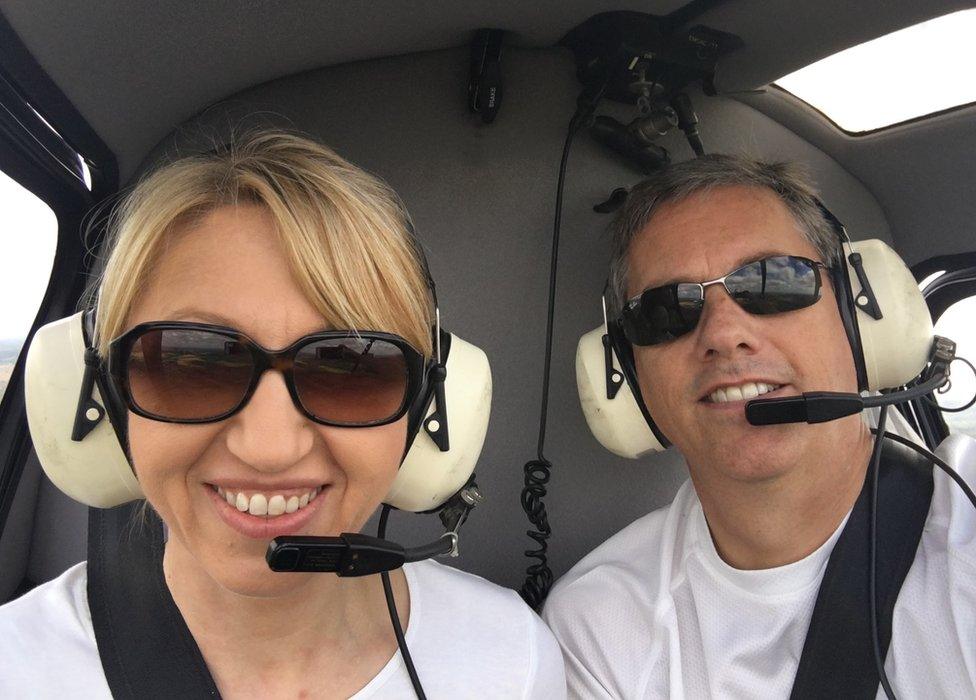
Izabela Roza Lechowicz and Eric Swaffer were "soulmates" and "among the best pilots in the industry"
Piloting the helicopter was Eric Swaffer, who had decades of experience flying helicopters and aeroplanes. He worked alongside his partner and fellow pilot Izabela Lechowicz, who was on board as a passenger that night.
"I remember saying to him a long time ago 'Helicopters scare me'," says airline captain Nayen Hirani, who was mentored by the couple from the age of 16.
"He said 'Yeah, they can be scary because if you lose the tail, that's it'."
There is a rotor at the end of the tail and it counters the turning effect of the main rotor - the one above the helicopter. If there is a fault with the tail rotor, the helicopter will start to spin.
This is what happened to the helicopter Mr Swaffer was flying that night. Mr Hirani is almost certain he knew he was going to die.
"If you are low enough perhaps you can sustain injury if it comes down, but I'm pretty certain he knew what the outcome was going to be," says Mr Hirani.
He found out about the crash himself in a breaking news article.
"I knew he had flown the helicopter that day in the stadium, and then I saw a picture of the helicopter on its side," he says. "I was trying to ring Eric and Izabela at the time but both of their phones were off. So I knew it was them."
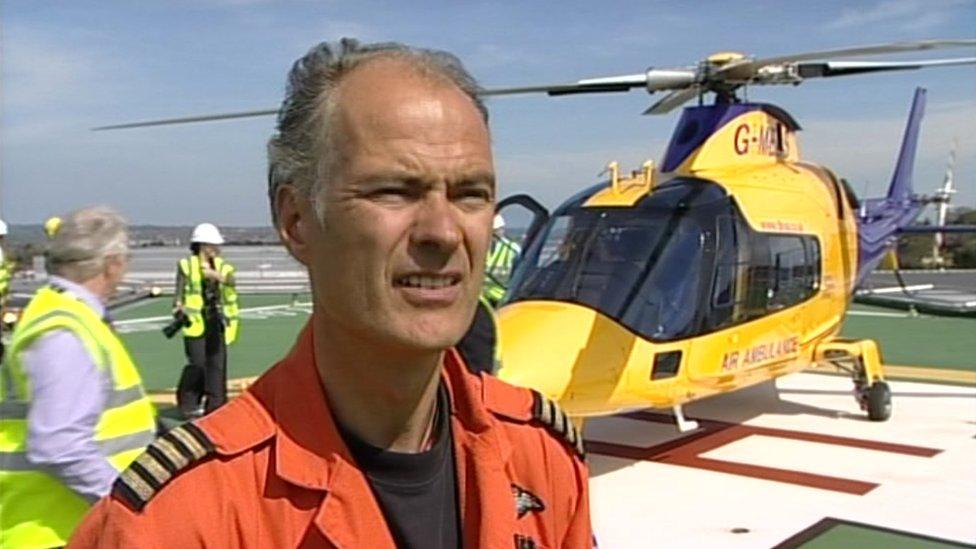
Pete Barnes, a friend of Eric Swaffer, died in a helicopter crash in Vauxhall, London, in 2013
Mr Swaffer had known from personal experience how dangerous helicopter crashes could be. One of his friends, Pete Barnes, was flying in misty conditions when he hit a crane in Vauxhall, London, in 2013. He was killed along with a man on the ground. Five people were taken to hospital and seven more were treated at the scene.
This accident made Mr Swaffer even more safety conscious than he had already been, according to Mr Hirani.
"I don't think there was anyone more qualified than him," he says.
"If you think about his employment record, he has flown for some of the wealthiest individuals around the world. They would want the best, and Eric was one of those pilots that was very sought after. They [Eric and Izabela] were both very well known in the industry."
Mr Swaffer was described as a hero in the days after the crash because the helicopter did not kill or injure anyone on the ground. People speculated he might have steered it to a clear area, and Mr Hirani believes this is likely.
"He would have tried to do his best to minimise any damage on the ground, even knowing at the back of your mind that this is it," he says.
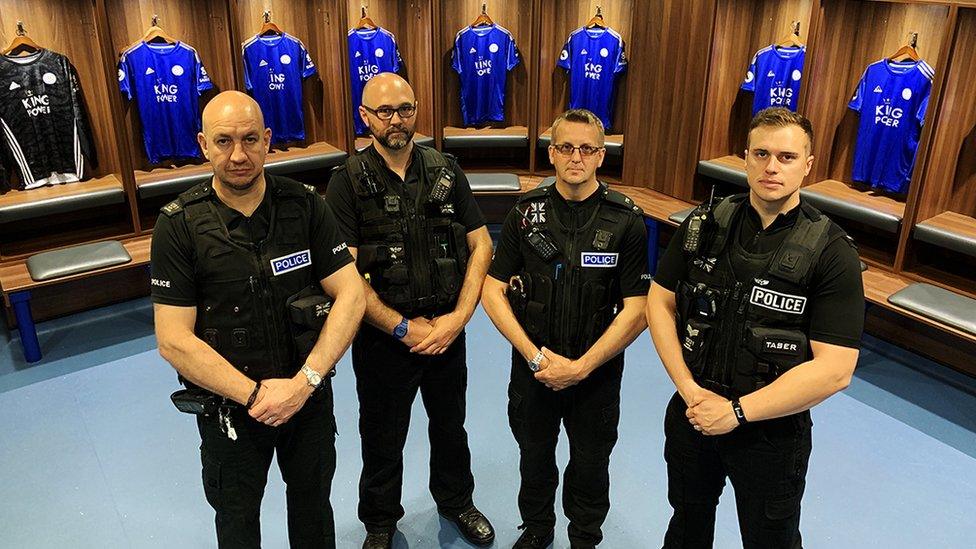
(L-R): PC Kevin Marsh, PC Steve Quartermain, PC Michael Hinton and Sgt Mike Hooper were first at the scene
Four police officers risked their own lives and suffered burns after running over to the helicopter and trying to help the victims. Eyewitness Leo Bruka said he saw one of them trying to break the window of the helicopter.
"Then there is an explosion and they pulled back because the fire was too hot," he told the BBC at the time.
Meanwhile, firefighters had been sent to the stadium in the hope any casualties could be saved.
"The call came in, we realised immediately the gravity of the situation, and also who was involved," says firefighter Nick Lack.
"Leicestershire is a tight community, especially with the football."
His colleague, Joe Robinson, says they "kicked in to work mode".
"You don't have time to think emotionally about it," he says. "At first, it's a fire and you need to put it out, and you deal with everything else afterwards."

(L-R): Vichai Srivaddhanaprabha, Kaveporn Punpare, Nusara Suknamai, Izabela Lechowicz and Eric Swaffer
Izabela's heavily pregnant sister had also heard about the helicopter crash on the news, so she and her husband started driving up from London.
"Obviously we were very close with them so we knew their schedule and what they were doing," says Kate Lechowicz.
"We were at our home and had seen the first thing on the news and, literally two minutes after, we were in our car to Leicester trying to figure out what had happened.
"Our initial thinking was to drive to the hospital hoping they would be there, but we were routed to a Leicester police station and that's where we drove."
She had known Mr Swaffer for almost 20 years and describes the couple as "soulmates".
"Flying together, living together, working together - always together," she says. "They both loved aviation and were among the best pilots in the industry. If you knew Eric, he was always about safety and security; that was his mantra. He would never take any risks, either for himself or his clients."
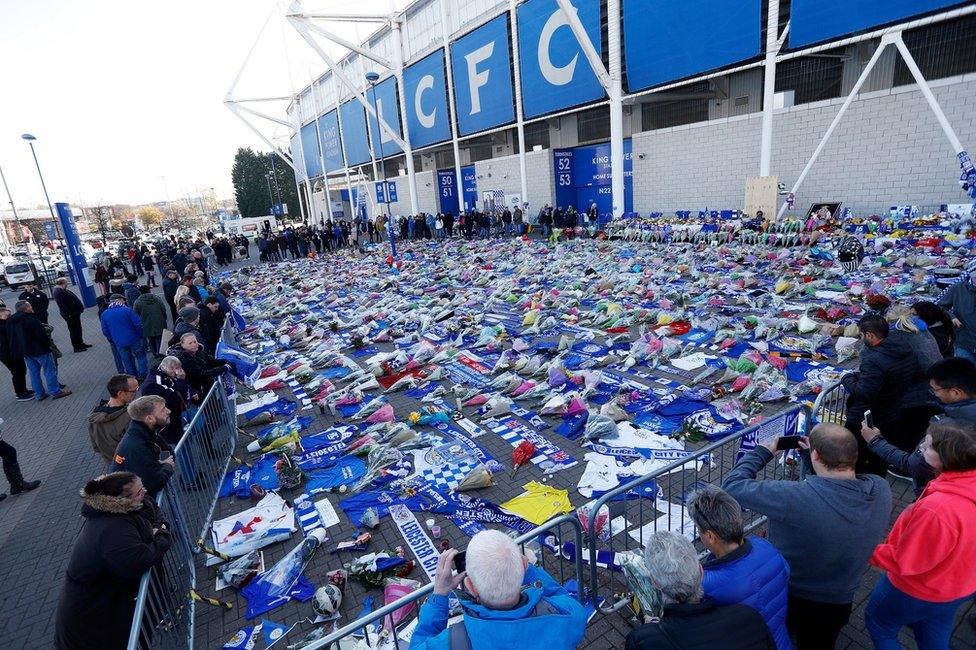
Thousands of people visited the King Power Stadium to pay their respects
It quickly became clear there were no survivors from the crash. The other two victims were Nusara Suknamai and Kaveporn Punpare, both members of the chairman's staff. Thousands of floral tributes were left at the stadium in the days and weeks that followed. The Duke of Cambridge, who had known Mr Vichai for several years, was among the thousands of people who visited the stadium to pay their respects.
Investigators from the Air Accident Investigation Branch (AAIB) had been sent to the scene on the night of the crash due to the gravity of the accident. They recovered the crashed AgustaWestland AW169 helicopter and identified a mechanical failure of a bearing in its yaw control system. However, the investigation is still continuing, and the final report is not due to be published until next year.
The spot where the helicopter crashed has been turned into a memorial garden and is due to be opened on the afternoon of the accident's anniversary.
"What happened that night in October last year will never be forgotten, and I think the memory of Vichai will live large amongst Leicester fans," says Geoff Peters.
"He took us to the highest high but that night was the lowest low, the worst moment in the history of Leicester City."
Kasper Schmeichel, who has not been back to the crash site since it happened, hopes it will bring some comfort to himself and others.
"I'm looking forward to seeing the actual thing in real life," he says. "I think it will bring hopefully some closure to many people, to be on the site to see where it happened, I think it's going to be a good thing for the entire Leicester City family."
Duke and Duchess of Cambridge lay floral tribute at Leicester crash site
The AAIB has issued several bulletins directing owners of the same and similar helicopters to carry out extra inspections of the affected parts.
Leonardo, which made the helicopter, has been assisting the investigations.
"Whilst such investigations continue, operators have been conducting in-service inspections in accordance with Leonardo's instructions," it said in a statement, "We will continue to assist as required and look forward to the conclusion of the investigations in due course."
Inquests into the deaths have been opened and adjourned, but will not be held until the AAIB report is complete.
- Attribution
- Published19 October 2019
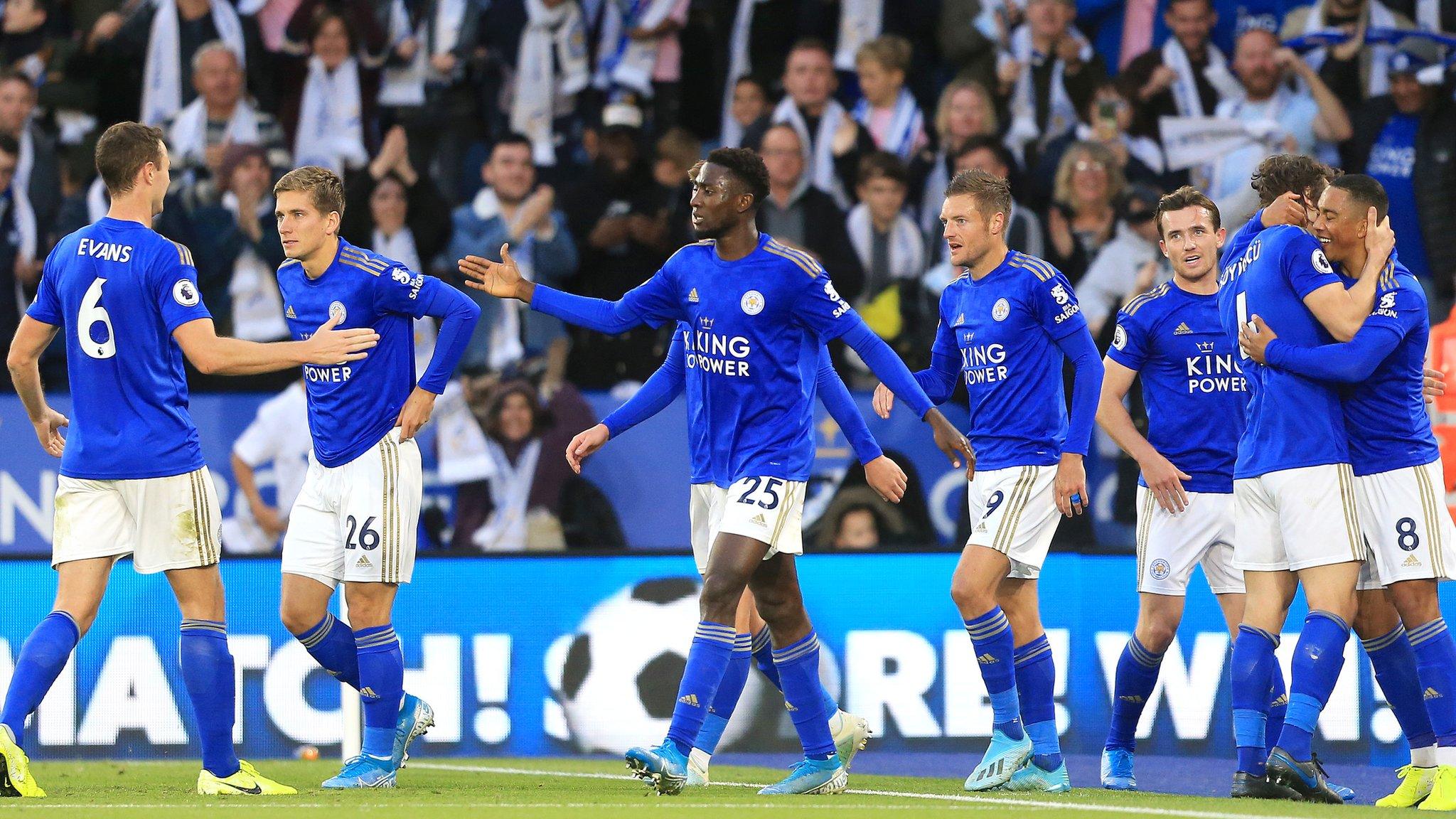
- Published24 September 2019

- Published9 September 2019
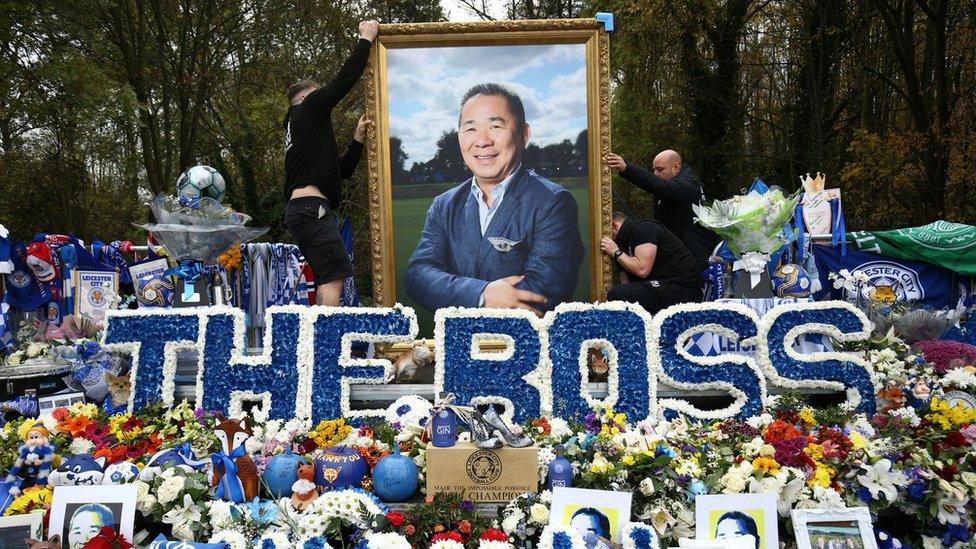
- Published16 October 2019
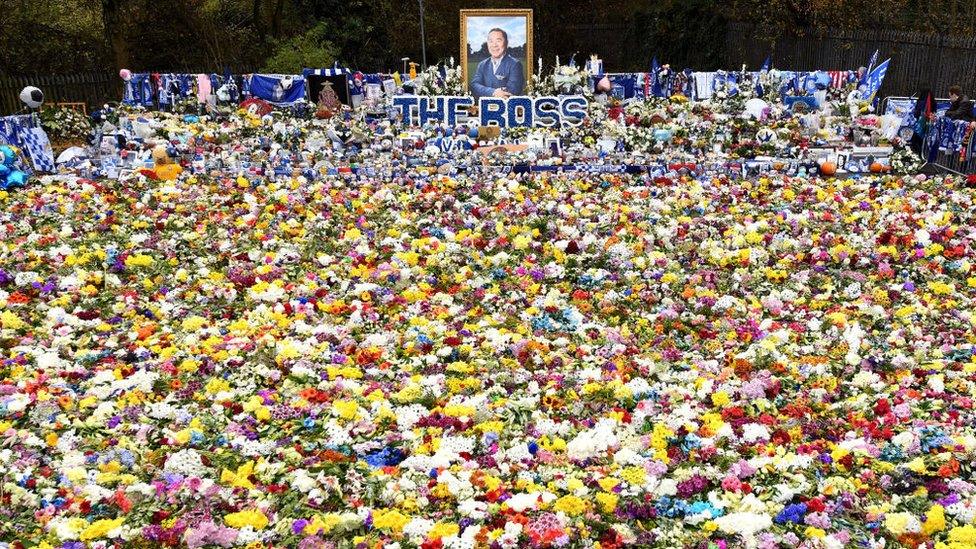
- Published26 June 2019
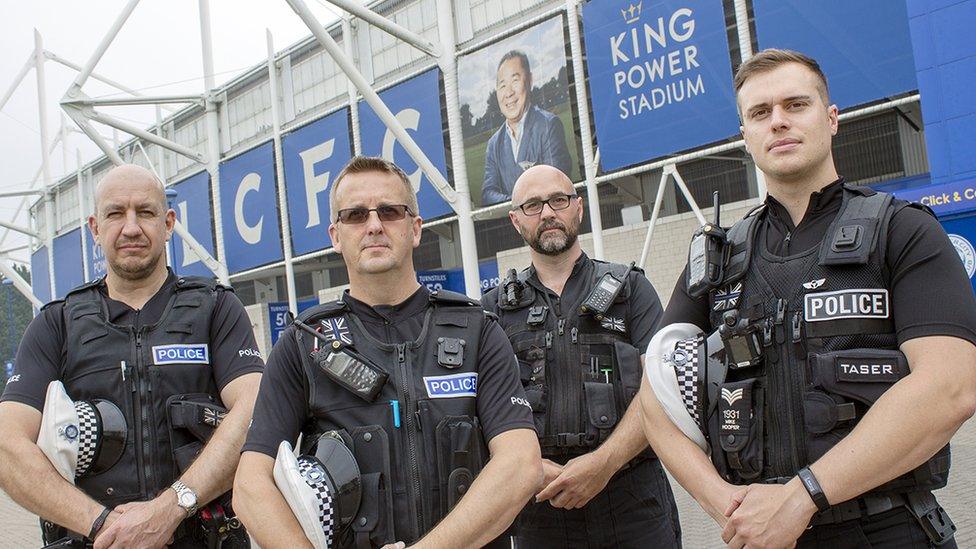
- Published4 April 2019
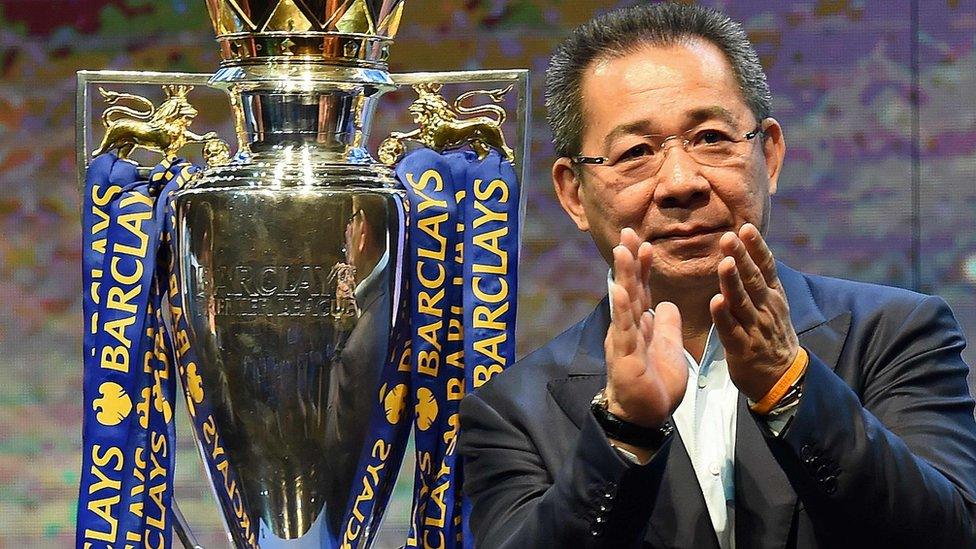
- Published21 March 2019
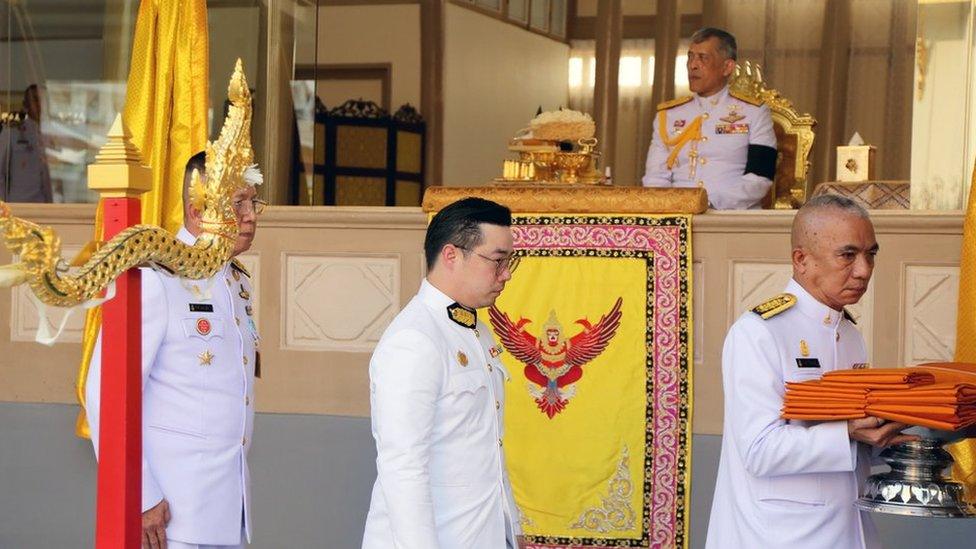
- Published10 November 2018
